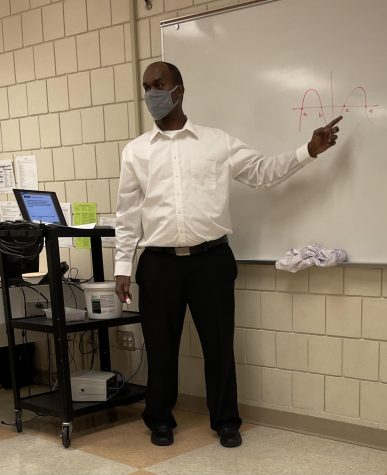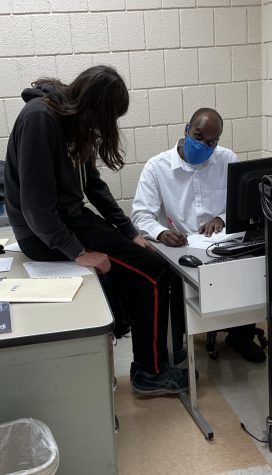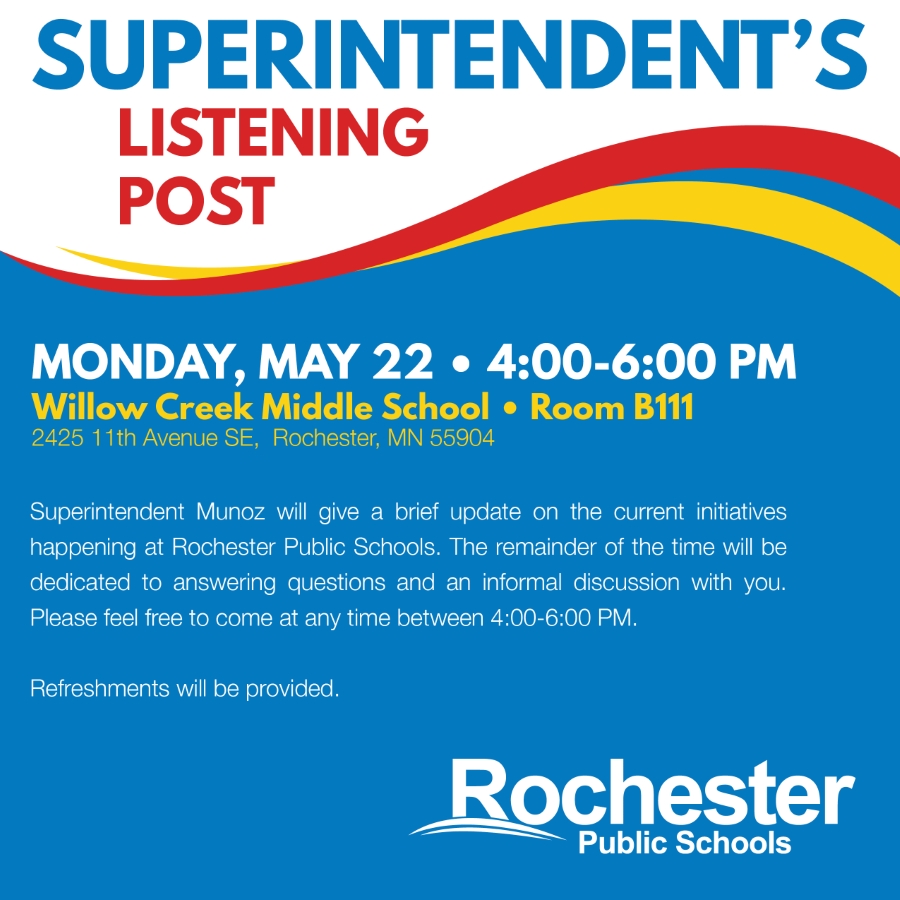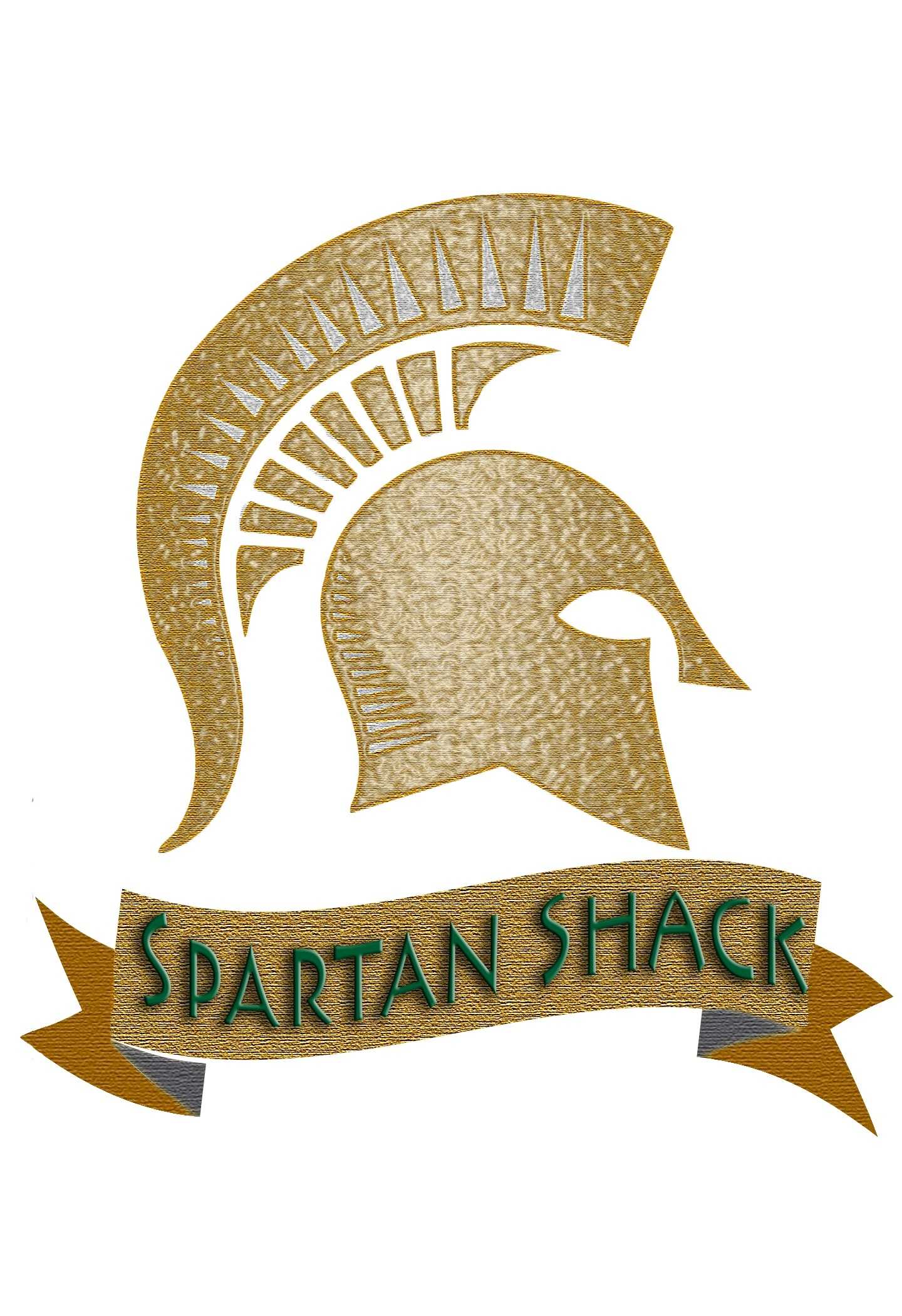Dr. Musa brings much to Mayo
November 2, 2021

During class, Mr. Musa turns towards the students to further explain the new lesson on the board.
Dr. Musa Gabere has had many careers in problem solving. Whether it be through industrial mathematics (Global optimization), biological research and therapy, or mathematical questions, he always had a passion for mathematics.
Dr. Gabere was born in Kenya on December 15, 1978. As an elementary and middle school student, he was not a complete fan of school until 7th grade, when he found his love for learning due to one of his teachers encouraging him to work hard towards what he wanted to learn and study; in this case his interest in medicine and biological studies.
Shortly after high school, Mr. Musa, as he prefers to be called by his students, wanted to go into medicine but was not able to, due to the competitive nature of medical colleges. As a result, he continued to explore what he might find interest in, which led him to pursuing a Bachelor’s degree of Science (Mathematics). While doing this he went to the University of Nairobi in Kenya, where he studied chemistry and science for the first two years. When starting his third year Musa changed his major to mathematics and finished his bachelor’s degree in Mathematics. After graduation, Musa then traveled to South Africa to complete his Masters and Doctor of Philosophy (Ph.D.).
While completing his masters and Ph.D., Mr. Musa used his mathematics skills in predicting antimicrobial peptides using artificial intelligence; this job had him studying protons that attack any virus, bacteria, or fungi . After completing his Ph.D., Doctor Musa applied to the University of Namibia science and technology where he taught math and statistics for two years; he also supervised students doing projects related to math and statistics. Before moving to Rochester in 2019, Dr. Musa went back to biomedical research and studied cancer-related issues like heat stroke and stress; through this he kept using his mathematics practice in his research.
In 2019, Dr. Musa moved to Rochester MN to accept a job at the Mayo Clinic and pursued research in neurological disorders. He analyzed MRI scans to find brain abnormalities and understand neurologic diseases such as Alzheimer’s and schizophrenia. Shortly after Dr. Musa looked towards performing more studies and got job opportunities at Harvard Brigham and Women’s hospital to do research, he also applied for National Institute of Health (NIH) but due to the time it takes for the grant to go through, Dr. Musa turned to his love of teaching. In March 2021 Dr. Musa started at Friedell Middle School, then moved to Mayo High School this past fall as a math teacher.
Overlooking everything Dr. Musa states that “I do not regret doing mathematics because medicine has its own challenges as well, but math is a really useful subject to apply anywhere. Whether you become a doctor, or a lawyer, whether you’re doing physics, or chemistry you will need math.”

After a long day of lesson review, Mr. Musa helps check Jacob Miller’s work on a tricky math problem.
Being at Mayo High School, Dr. Musa wanted to share his advice with the Spartan nation by saying “Students should feel safe in class, and if they have feedback, tell the teacher.” In fact he believes that all classrooms should, “feel open… because the teacher will be able to adjust according to some of the challenges the students are going… The more feedback [students] give the teacher the better.” Dr. Musa also feels that students should feel open to talking to their teachers and possibly creating a working relationship between them by saying “…create relationships…so they can feel more confident together as a team in order for students to learn more knowledge.”
In his free time, Dr. Musa and his family love to travel to all sorts of places and have even been to Chicago. While visiting Chicago, Dr. Musa enjoyed discovering what living in Chicago was like.
In the future, while continuing to pursue his career in teaching, Dr. Musa hopes to be able to work on artificial intelligence and problem solving in biomedical sciences and business applications.




